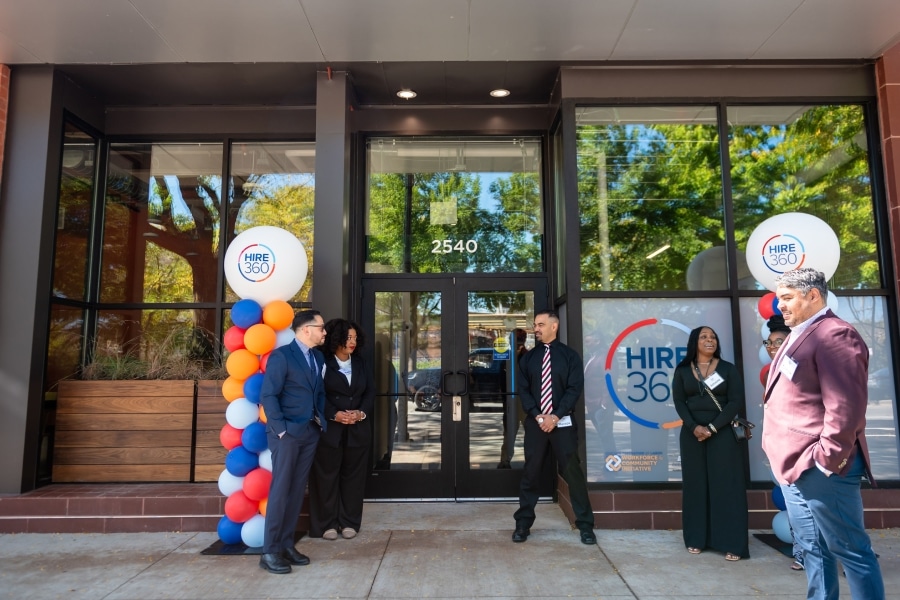
Randy Hanson wasn’t having symptoms. He felt fine. But during a routine checkup, his doctor included a PSA (Prostate-Specific Antigen) test with the bloodwork. The number came back in relatively normal range. But because his brother passed away from prostate cancer, doctors recommended further tests.
That led to a biopsy—and then the call: prostate cancer.
“It wasn’t even a prostate cancer screening appointment,” Hanson said. “I wasn’t expecting anything.”
The key was that he didn’t wait to get checked.
A Second Opinion—and a Push for Action
Benji Gibson’s diagnosis started somewhat similarly: a routine PSA flagged something abnormal. He was referred to a urologist, who confirmed a suspicious nodule and quickly ordered a biopsy.
The biopsy showed prostate cancer. Surgery followed. But even with an efficient diagnosis, Gibson’s recovery brought its own challenges—fatigue, pain and a long emotional comedown after the adrenaline wore off.
“After the surgery, it wasn’t like everything went back to normal,” he said. “It took time—physically and mentally.”
One Test, Two Paths
Both men were diagnosed early. Neither experienced symptoms. That’s the silent nature of prostate cancer.
According to ZERO Prostate Cancer, the nation’s No. 1 provider of prostate cancer programs and support, 1-in-8 men will be diagnosed with prostate cancer during their lifetime. The organization also reports that 313,780 new cases of prostate cancer are expected to be diagnosed in 2025.
The five-year survival rate for cancer caught before it spreads is nearly 100%. But once it metastasizes, the 5-year survival rate for advanced or metastatic prostate cancer drops to 37%.
A bigger problem: Many of these yearly cases happen in large part because most men skip routine screening. What’s more, the problem is even more pervasive in construction, an industry dominated by men.
According to a 2025 State of Men’s Health in Construction survey commissioned by Bluebeam in partnership with ZERO Prostate Cancer, 65% of male construction workers have never been screened for prostate cancer, with 81% reporting delaying screenings even though they know they are available.
A routine PSA test can catch it early. It’s not perfect, but it’s often the only early signal a man will get. And for many in construction, that test never comes.
Why Construction Workers Get Left Behind
Prostate cancer doesn’t play fair—but it does play favorites. Construction workers are among those least likely to have regular screenings. Reasons range from lack of time and insurance access to a deeper culture of brushing off medical concerns.
“I’ve worked in construction,” Gibson said. “We push through everything. You’re sore, you’re tired, you just keep going.”
That mindset can save deadlines. It won’t save lives.
The Unspoken Risk
And while Gibson’s care team acted quickly, no one directly told him that his risk for prostate cancer was significantly higher.
“I didn’t know until after,” he said. “It’s not something we talk about.”
Medical mistrust, stigma around rectal exams and concerns about sexual health all play a role. But none of those things should stop someone from asking their doctor about a test that could save their life.
If You’re a Man Over 45, Here’s the Play
Neither Hanson nor Gibson is looking to become an awareness mascot. They’re just two guys who went through something hard and came out with something to say.
Here’s what they want you to know:
- If you’re 50 or older, ask your doctor about a PSA test.
- If you’re Black or have a family history, start that conversation at 45—or sooner.
- Firefighters and Veterans are two groups that have been linked to an increased risk of prostate cancer.
- Don’t assume you’ll feel symptoms.
- Don’t assume your risk is low just because you’re busy.
- Don’t assume “being fine” means you’re in the clear.
As Hanson put it: “Don’t be the guy who waits. Don’t be me before that appointment.”
Final Word
Prostate cancer rarely announces itself. But that doesn’t mean you can’t catch it early. The good news is, for Hanson and Gibson, because of quick action, they’re currently cancer-free.
Start with a conversation. Ask about the test. And if you’re in construction—where health often takes a backseat to deadlines—make the time.
Because the job can wait. Your life can’t.
Take the First Step
Want to understand your risk? These tools and resources can help:
Bluebeam’s “Check Yourself” campaign launched this September for Prostate Cancer Awareness Month. We’re sharing stories, resources and real talk to help men in construction and beyond stop waiting and start protecting their health.










